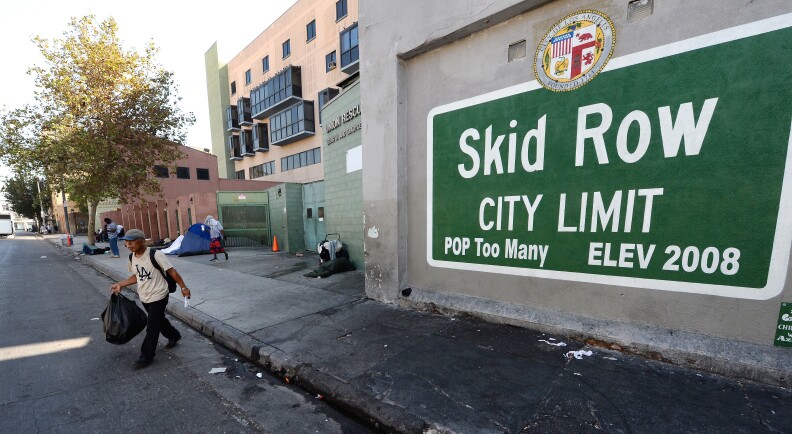Dozens marched over the weekend in Los Angeles to protest the fatal shooting of a homeless man in Skid Row last week. The incident has prompted scrutiny of how such incidents are handled by law enforcement.
RELATED: Police and the mentally ill: LAPD unit praised as model for nation
Around 30-40 percent of the homeless in California are estimated to have mental illness issues, according to Dr. Robert Okin, professor emeritus of psychiatry at the University of California, San Francisco and former commissioner of mental health for the states of Vermont and Massachusetts.
One of the primary issues driving homelessness is the rising cost of housing in the region, said Okin.
"That just pushes people who are economically vulnerable off the cliff into homelessness," said Okin, whose latest book is Silent Voices: People with Mental Disorders on the Street. Another factor, said Okin, is the high number of veterans returning from wars in Iraq and Afghanistan.
"That's a population that's also at risk for real mental health problems and homelessness," he said.



